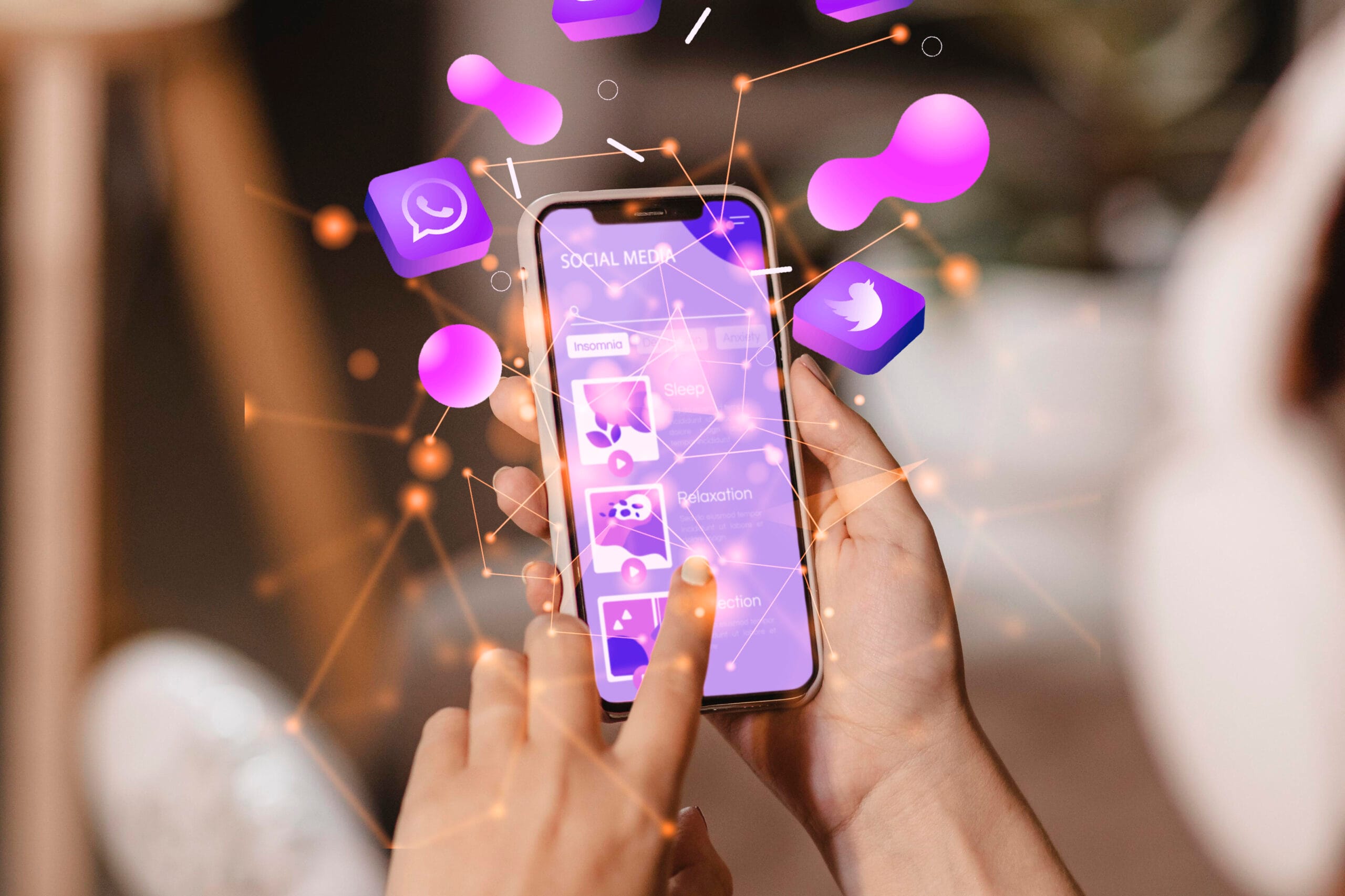Have you ever wondered how some brands seem to pop up everywhere online, at just the right moment? That’s not luck. It’s smart social media marketing. From viral TikToks to powerful Instagram stories, today’s marketing is all about making real connections in the digital world. Whether you’re a small startup or a global brand, mastering social media marketing can turn followers into loyal customers and likes into lasting impact.
Understanding Social Media Marketing
Social media marketing means promoting products and services through digital channels like Facebook, Instagram, and Twitter. This form of marketing has changed how brands connect with customers. The world of social media offers immediate engagement, allowing businesses to build brand awareness and achieve their marketing goals. Because the nature of social media is interactive and visual, marketing on social media has become a powerful way to influence buying behavior. Popular social media platforms offer cost-effective tools to launch successful social media marketing campaigns.
What Is Social Media Marketing?
Social media marketing refers to using social media platforms to promote a business, build relationships, and drive engagement. It involves creating and sharing content on social media networks to support your overall marketing strategy. With tools like Sprout Social and other social media management platforms, businesses can schedule social posts, track social media analytics, and enhance brand awareness. Today, marketing requires a strong social media presence to remain competitive. Using social media helps brands reach wider audiences and measure results more effectively.
Did you know that 77% of businesses use social media marketing to reach customers?
Key Benefits of Social Media Marketing
The benefits of social media marketing include increased visibility, improved customer engagement, and targeted communication. Brands on social media can quickly adapt to digital trends and gain insights through social listening. Through influencer marketing and tailored content strategy, companies can humanize their marketing efforts. Social media campaigns allow real-time interactions that traditional marketing can’t provide. Additionally, social media marketing requires fewer resources compared to offline campaigns, offering high ROI.
Examples of Social Media Marketing Success
Examples of social media marketing success include viral campaigns, influencer collaborations, and innovative uses of social channels. For instance, brands are using social media platforms like TikTok and Instagram to promote products through creative storytelling. A successful social media strategy often features emotional appeal, compelling visuals, and authentic content. Social media influencers help amplify messaging and boost reach on social media. Overall, social media marketing has grown into a critical pillar for modern brands.
Read also What is information technology?
Building a Social Media Marketing Strategy

A successful social media strategy requires careful planning and execution. Businesses must focus on social channels that match their brand voice and audience. A strong social media presence depends on consistency, quality content, and responsive social customer service. Whether you’re launching a new campaign or optimizing your current social media efforts, a well-structured strategy will improve results. Understanding the importance of social allows marketers to align content with broader marketing goals.
Did you know video content is the most engaging form of social media content?
How to Create an Effective Social Media Marketing Plan
To create an effective social media marketing plan, start by setting clear objectives tied to your marketing goals. Then, analyze your audience across social platforms to understand behavior and preferences. Next, choose platforms like Facebook, LinkedIn, or Instagram based on your business type. Include a content strategy that blends promotional and educational social content. Lastly, use a social media marketing tool to monitor performance and adjust tactics.
Tips to Make Your Social Media Marketing Work
To make your social media marketing work, stay consistent, create engaging visuals, and leverage user feedback. Social listening tools like Sprout Social reveal what your audience wants. Focus on social media trends and adjust your tone accordingly. Collaborating with a social media manager or using social media management services helps maintain a professional image. Regularly analyze your marketing campaigns to improve engagement. Remember, effective social marketing strategy aligns with your business objectives.
Using Social Platforms to Boost Your Reach
Using social platforms strategically can increase reach on social media and grow your digital marketing footprint. Choose platforms like Instagram for visuals or Twitter for real-time updates. Post frequently and share it on social media during peak hours. Engage directly with followers to enhance social media customer experience. Integrating influencer marketing can also drive traffic and expand brand awareness. Focus on social to unlock the power of social media platforms.
Leveraging Social Media Marketing Services
Social media marketing services offer professional support for managing accounts, creating content, and running targeted ads. They ensure your social media strategies stay aligned with overall marketing efforts. With social media marketing also evolving rapidly, outsourcing tasks to experts improves consistency and efficiency. Marketing services often use advanced tools for analytics, reporting, and audience segmentation. As a result, businesses save time and achieve better outcomes.
What Do Social Media Marketing Services Offer?
Social media marketing services offer campaign planning, content creation, and audience analysis. They use a social media marketing strategy that matches your brand tone and marketing needs. These services track performance and adjust strategies based on social media analytics. They also provide insights from social media usage patterns and help businesses stay competitive. Engaging a service provider simplifies complex digital marketing tasks.
How Marketing Services Support Your Marketing Efforts
Marketing services support your marketing efforts by optimizing social media content and ensuring consistency across social platforms. They manage social media accounts professionally while aligning posts with business objectives. These services streamline social media management and offer reports that inform future decisions. In addition, they identify social media influencers who match your target audience. Through expert help, your social marketing strategy becomes more precise.
Choosing Services That Fit Your Marketing Strategies
Choosing services that fit your marketing strategies begins with identifying your goals and budget. Look for marketing services with experience in your industry. Ensure they understand social media channels and can adapt to digital trends. Select providers who offer integrated marketing approaches, including influencer collaboration, content strategy, and social customer service. Ultimately, effective social media marketing services should enhance your overall marketing performance.
Enhancing Results Through Content and Advertising

Enhancing marketing results requires combining compelling content with smart advertising tactics. A well-executed content strategy improves engagement, while digital ads increase visibility. Businesses must balance organic and paid methods to maximize impact. Across social platforms, marketers can test formats and refine messaging. Understanding your audience and adjusting based on data ensures long-term growth.
Did you know social media marketers often rely on AI tools to boost performance?
Developing a Targeted Content Strategy
Developing a targeted content strategy involves understanding your audience and delivering valuable social media content. Use insights from social media analytics to create relevant topics. Tailor messages to different social media channels and use visuals that align with your brand. Maintain a consistent posting schedule to build a strong social media presence. A thoughtful content plan drives interactions and strengthens brand loyalty.
Effective Social Media Advertising Techniques
Effective social media advertising combines audience targeting, creative design, and timely execution. Platforms like Facebook Ads offer advanced segmentation tools. Use social media marketing strategies that test formats such as carousel ads or stories. Incorporate calls-to-action and optimize based on results. Smart social media advertising maximizes ROI and supports broader marketing campaigns. Keep tracking metrics to improve future ads.
Read also Pixel Photo Unblur on the Google Pixel
How Social Media Marketers Maximize Engagement
Social media marketers maximize engagement by creating relatable content, encouraging interaction, and analyzing data. They use social media analytics to refine campaigns and address customer needs. Collaborating with social media influencers adds credibility and reach. Staying updated on trends ensures content remains fresh. In the world of social media, marketers who adapt quickly often outperform competitors.
Frequently Asked Questions about Social Media Marketing
In what ways has social media transformed the marketing world?
Social media has changed marketing by enabling direct interaction, expanding social media usage, and shifting focus toward social content. It allows brands to launch personalized social media marketing campaigns, track behavior via social media analytics, and grow through social media influencers.
What is in a social media marketing?
Social media marketing includes content creation, social media advertising, influencer marketing, and social customer service. It uses platforms to build brand awareness, measure performance, and achieve precise marketing goals across social media channels.
How do beginners start social media marketing?
Beginners should use a social media marketing tool, create a simple social media account, and follow current social media today trends. They can explore free online marketing guides or use a use a social media plan to stay consistent.
What exactly does a social media marketer do?
A social media marketer creates posts, manages campaigns, tracks metrics, and builds social media presence. They also practice social listening, guide marketing on social media, and maintain valuable social media relationships.
do social media marketing activities enhance customer equity?
Yes, social media marketing activities build loyalty, improve experience, and raise customer equity through strong engagement. This reflects the importance of social interaction in modern marketing strategies.
So, what’s stopping you from turning your scroll time into strategy? With the right tools, a clear plan, and creative energy, your social media marketing can spark real engagement and drive meaningful results. Remember, every post, story, and comment is an opportunity to connect, inspire, and grow. Ready to make your mark? Tell us, what’s your next move on social?
Let’s Know What is the purpose of technology